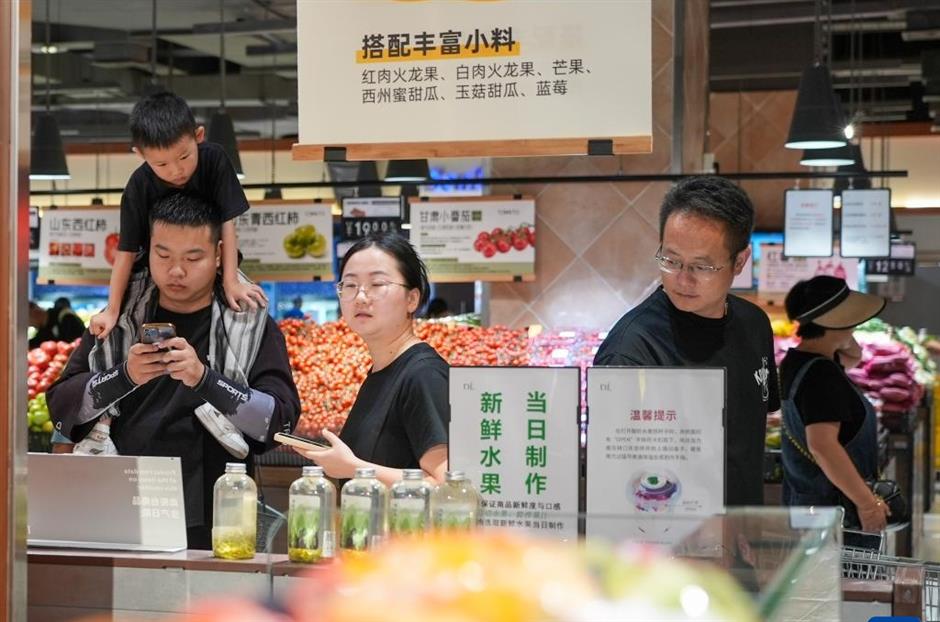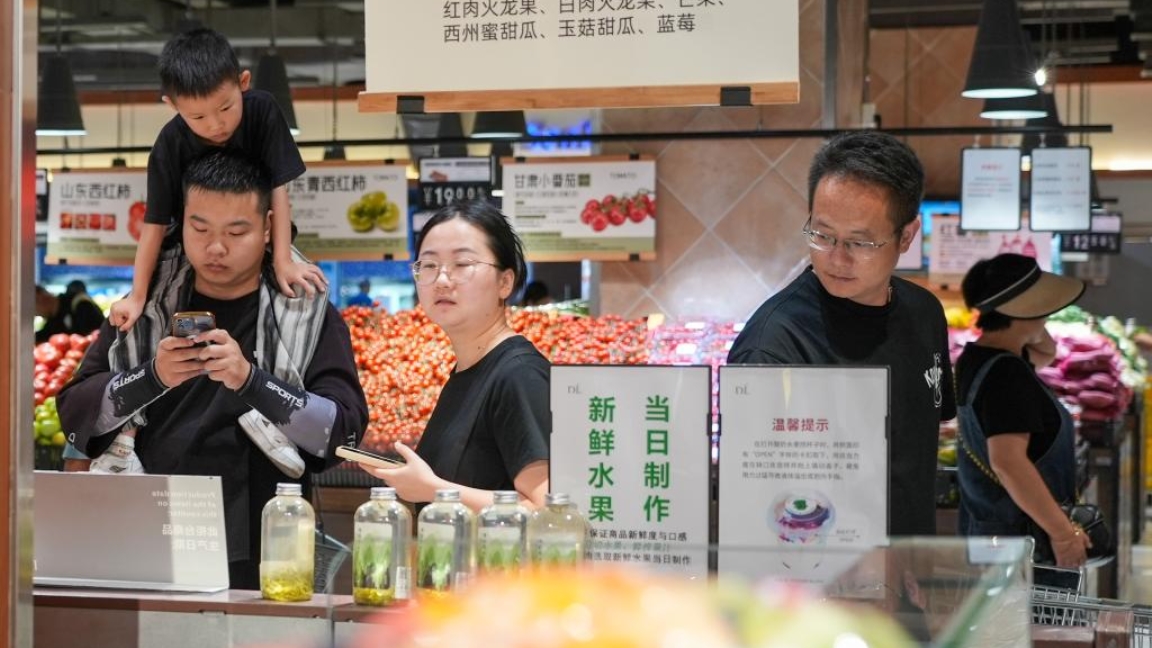
I've been following the words and deeds of the founder of a local supermarket chain in central China's Henan Province for quite some time. And his minute care for customers and employees alike has convinced me that an enterprise can thrive by enriching all parties involved instead of the boss alone.
For example, at Pangdonglai, a retail giant named after its founder Yu Donglai, about 95 percent of its profits go to employees' payrolls. On June 11, Yu announced that the supermarket chain's net profits of 2025 were estimated at around 1.5 billion yuan (US$205 million), the bulk of which would go to the payrolls of its more than 8,000 employees. Such a high payroll-to-profit ratio is rare indeed among many businesses the world over.
Customers get a good deal as well. For example, about half of the medicines sold at Pangdonglai are priced below 10 yuan, while the overall profit margin for drugs priced above 30 yuan hardly exceeds 10 percent, below that of many other drug stores.

People shop at a Pangdonglai store in Xuchang, Henan Province.
In short, I've been watching Pangdonglai, an Internet sensation known for its egalitarian thoughts and actions, with a sincere hope that more businesses will follow suit by sharing benefits with customers and employees alike.
And yet, this is not the whole story about Pangdonglai.
On August 8, Pangdonglai announced it would recruit retired soldiers as well as released inmates for a new shop to be opened in Henan's Xinxiang City. To be specific, the new shop would need 1,000 employees, and Pangdonglai has reserved positions for 200 retired soldiers from high-plateau frontier regions such as the Xinjiang Uygur Autonomous Region and Xizang Autonomous Region. In addition, there would be jobs for 20 former inmates.
Such a recruitment notice immediately became a hot topic. As expected, there was unanimous support among netizens for Pangdonglai's decision to recruit retired soldiers. As for the decision to employ former inmates, public attitudes varied, though most netizens applauded it, calling Pangdonglai a benevolent enterprise doing good while doing well. Only a few netizens doubted former inmates' ability to do well or do good.
On August 10, founder Yu explained why the supermarket chain would recruit released inmates. He said: "He/she (a former inmate) took a wrong path, but he/she has served his/her prison term and become a normal person now... Let's understand each other, not discriminate against one another. Discrimination only causes greater harm."
Recruiting 20 former inmates may not be a big deal, but it sends a clear signal to society that love cures while discrimination hurts.
What moves me most is not the recruitment decision itself; it's the thinking behind it.
Everyone could have taken a wrong path, but this should not lead us to believe that a once fallen soul cannot correct itself. Pangdonglai chooses to believe in everyone's propensity to do good and in the power of all to love each other. In this sense, Pangdonglai is more than a profit-making platform; it's a place where people are encouraged and empowered to find the better angels in themselves.
Certainly, Pangdonglai is not the first or only firm to have recruited released inmates. But given Pangdonglai's unique influence as an enterprise thriving on doing good, its decision to recruit 20 released inmates may have a greater and more positive impact on people's attitude toward those whose life once unfortunately took a wrong turn.

